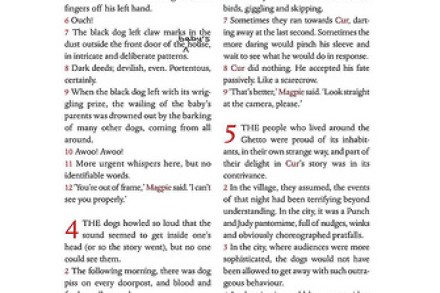Aspirin for our spiritual hangover
Contemporary poetry (to misquote Blackadder), is a lot like sex. Tons of it about, but I just don’t get it. So I was a little nervous when I gave Apocrypha a go. But I’m happy to say I quite liked it (I seem to remember the same thing about sex, come to think of it).








